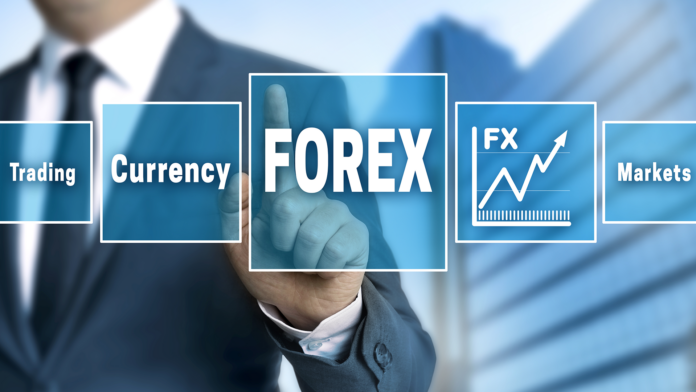This guide provides a comprehensive overview of the forex market, exploring its key advantages and potential risks. It dives into the significance of major currency pairs and offers valuable insights on considerations for effective trading. Whether you’re new to forex or seeking to refine your strategy, this guide aims to equip you with the essential knowledge to navigate the world’s largest financial market successfully.
What is Forex?
The foreign exchange market, also known as forex or FX, is the global marketplace for exchanging currencies. This market involves traders buying and selling currency pairs simultaneously, for example EUR/USD or GBP/USD.
The exchange rate between different currency pairs shows the rate at which one currency can be exchanged for another. This market plays a crucial role in international trade and businesses. Since international transactions involve currencies of both the buying and selling countries, the forex market facilitates the exchange necessary for such transactions.
The large number of currencies traded in the forex market generates constant fluctuations in price quotes. This volatility can increase the possibility of making higher profits or incurring greater losses, making it attractive to some investors.
How to Invest in the Forex Market
The forex market is one of the most active markets globally, with a daily turnover exceeding 5 trillion USD. A common question is: “When does the forex market open?” Unlike markets that trade on a centralized exchange, the forex market operates 24 hours a day, typically from 5 p.m. EST on Sunday to 4 p.m. EST on Friday.
A wide variety of currencies are continuously traded in this market. Individuals, organizations, and companies worldwide make transactions and try to capitalize on fluctuations in the exchange rates of currency pairs.
Currency Pairs
Forex trading always involves currency pairs, such as EUR/USD. It’s important to speculate on price movements and establish trades accordingly. In the EUR/USD example, the first currency (EUR) is called the base currency, and the second (USD) is called the quote currency.
When trading currencies, you speculate on whether the base currency’s value will increase or decrease relative to the quote currency. For instance, in the EUR/USD example, you might predict that the value of EUR will rise against USD, or that the value of USD will rise against GBP.
Currency pairs are classified into three categories:
- Major pairs: These include the U.S dollar, such as EUR/USD, GBP/USD, and AUD/USD.
- Minor pairs: These do not include the USD and are traded frequently, such as EUR/GBP and AUD/NZD.
- Exotic pairs: These combine a major currency with a minor currency, such as GBP/MXN and USD/ZAR.
Impact of Currency Strength
It’s essential to note that a strong currency makes a country’s exports more expensive for other countries while making imports cheaper. Conversely, a weak currency makes exports cheaper and imports more expensive.
Benefits of the Forex Market
- Quick reaction to news: Currency prices react swiftly to current events.
- 24-hour trading: The forex market is open around the clock.
- Long and short positions: You can buy or sell currencies.
- High liquidity: Low spreads minimize trading costs.
Risks of the Forex Market
- Leverage: While leverage can amplify profits, it also significantly increases the risk of losses, potentially exceeding your initial capital
- Volatility: Sudden changes in quotes can affect your trading account balance. If you don’t have sufficient funds, your account may be closed.
Keys to Mastery: Navigating the Forex Journey
Forex trading offers a dynamic opportunity, appealing to both novices and veterans through its complex and rewarding nature. New traders can delve into global economics via currency trends, while experienced ones refine their approaches through market and geopolitical analysis.
Achieving success in forex requires a thorough grasp of the economic and political contexts influencing currencies. Experts often focus on specific pairs, deeply analyzing financial and geopolitical impacts on market sentiment and volatility.
For beginners, the path involves learning market analysis, risk management, and creating a disciplined trading plan, benefiting from community engagement and learning from both victories and failures. Experienced traders continuously adapt to market changes, leveraging their experience and staying alert to global economic events to adjust their strategies accordingly.
Forex trading is all about making well-informed decisions, testing the skills and flexibility of traders. Success comes from commitment, continuous learning, and a profound understanding of the market, for both beginners and seasoned traders alike.



